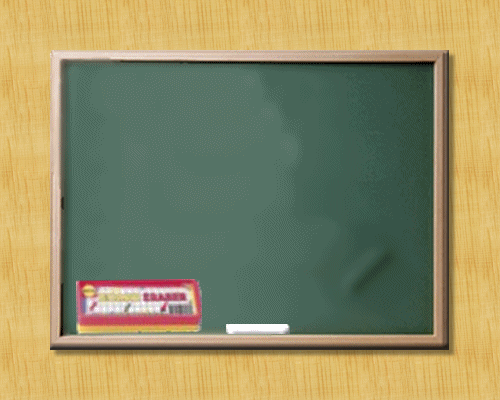Forming Comparative and Superlative Adjectives
One-syllable adjectives.
Form the comparative and superlative forms of a one-syllable
adjective by adding –er for the comparative form and –est for the
superlative.
| One-Syllable Adjective |
Comparative Form |
Superlative Form |
| tall |
taller |
tallest |
| old |
older |
oldest |
| long |
longer |
longest |
- Mary is taller than Max.
- Mary is the tallest of all the students.
- Max is older than John.
- Of the three students, Max is the oldest.
- My hair is longer than your hair.
- Max's story is the longest story I've ever heard.
If the one-syllable adjective ends with an e, just add –r for the comparative form and –st for the superlative form.
| One-Syllable Adjective with Final -e |
Comparative Form |
Superlative Form |
| large |
larger |
largest |
| wise |
wiser |
wisest |
- Mary's car is larger than Max's car.
- Mary's house is the tallest of all the houses on the block.
- Max is wiser than his brother.
- Max is the wisest person I know.
If the one-syllable adjective ends with a single consonant with a
vowel before it, double the consonant and add –er for the comparative
form; and double the consonant and add –est for the superlative form.
| One-Syllable Adjective Ending with a Single Consonant with a Single Vowel before It |
Comparative Form |
Superlative Form |
| big |
bigger |
biggest |
| thin |
thinner |
thinnest |
| fat |
fatter |
fattest |
- My dog is bigger than your dog.
- My dog is the biggest of all the dogs in the neighborhood.
- Max is thinner than John.
- Of all the students in the class, Max is the thinnest.
- My mother is fatter than your mother.
- Mary is the fattest person I've ever seen.
Two-syllable adjectives.
With most two-syllable adjectives, you form the comparative with more and the superlative with most.
| Two-Syllable Adjective |
Comparative Form |
Superlative Form |
| peaceful |
more peaceful |
most peaceful |
| pleasant |
more pleasant |
most pleasant |
| careful |
more careful |
most careful |
| thoughtful |
more thoughtful |
most thoughtful |
- This morning is more peaceful than yesterday morning.
- Max's house in the mountains is the most peaceful in the world.
- Max is more careful than Mike.
- Of all the taxi drivers, Jack is the most careful.
- Jill is more thoughtful than your sister.
- Mary is the most thoughtful person I've ever met.
If the two-syllable adjectives ends with –y, change the
y to
i and add –er for the comparative form. For the superlative form change the
y to
i and add –est.
| Two-Syllable Adjective Ending with -y |
Comparative Form |
Superlative Form |
| happy |
happier |
happiest |
| angry |
angrier |
angriest |
| busy |
busier |
busiest |
- John is happier today than he was yesterday.
- John is the happiest boy in the world.
- Max is angrier than Mary.
- Of all of John's victims, Max is the angriest.
- Mary is busier than Max.
- Mary is the busiest person I've ever met.
Two-syllable adjectives ending in –er, -le, or –ow take –er and –est to form the comparative and superlative forms.
| Two-Syllable Adjective Ending with -er, -le, or -ow |
Comparative Form |
Superlative Form |
| narrow |
narrower |
narrowest |
| gentle |
gentler |
gentlest |
- The roads in this town are narrower than the roads in the city.
- This road is the narrowest of all the roads in California.
- Big dogs are gentler than small dogs.
- Of all the dogs in the world, English Mastiffs are the gentlest.
Adjectives with three or more syllables.
For adjectives with three syllables or more, you form the comparative with more and the superlative with most.
| Adjective with Three or More Syllables |
Comparative Form |
Superlative Form |
| generous |
more generous |
most generous |
| important |
more important |
most important |
| intelligent |
more intelligent |
most intelligent |
- John is more generous than Jack.
- John is the most generous of all the people I know.
- Health is more important than money.
- Of all the people I know, Max is the most important.
- Women are more intelligent than men.
- Mary is the most intelligent person I've ever met.
Exceptions.
Irregular adjectives.
| Irregular Adjective |
Comparative Form |
Superlative Form |
| good |
better |
best |
| bad |
worse |
worst |
| far |
farther |
farthest |
| little |
less |
least |
| many |
more |
most |
- Italian food is better than American food.
- My dog is the best dog in the world.
- My mother's cooking is worse than your mother's cooking.
- Of all the students in the class, Max is the worst.
Two-syllable adjectives that follow two rules. These adjectives can be used with -er and -est and with more and most.
| Two-Syllable Adjective |
Comparative Form |
Superlative Form |
| clever |
cleverer |
cleverest |
| clever |
more clever |
most clever |
| gentle |
gentler |
gentlest |
| gentle |
more gentle |
most gentle |
| friendly |
friendlier |
friendliest |
| friendly |
more friendly |
most friendly |
| quiet |
quieter |
quietest |
| quiet |
more quiet |
most quiet |
| simple |
simpler |
simplest |
| simple |
more simple |
most simple |
- Big dogs are gentler than small dogs.
- Of all the dogs in the world, English Mastiffs are the gentlest.
- Big dogs are more gentle than small dogs.
- Of all the dogs in the world, English Mastiffs are the most gentle.
Sumber :
www.eflnet.com









